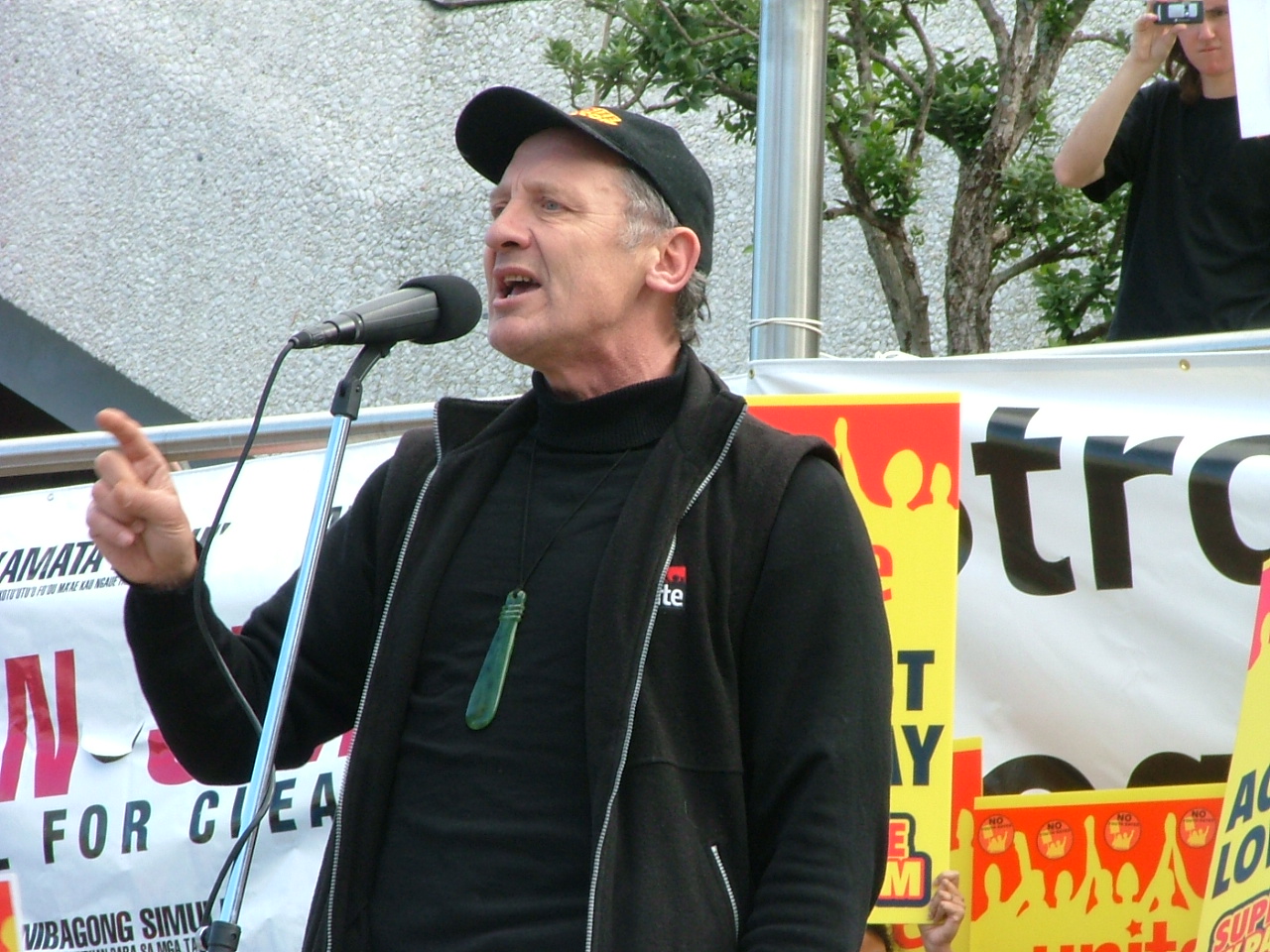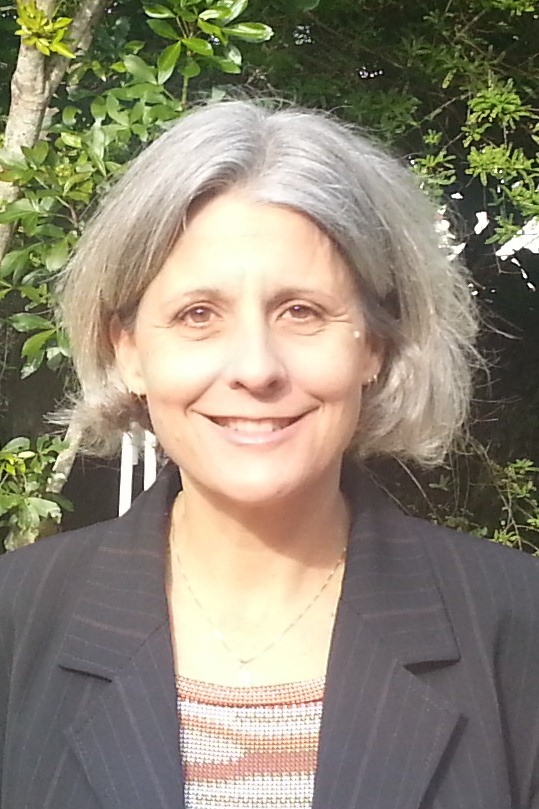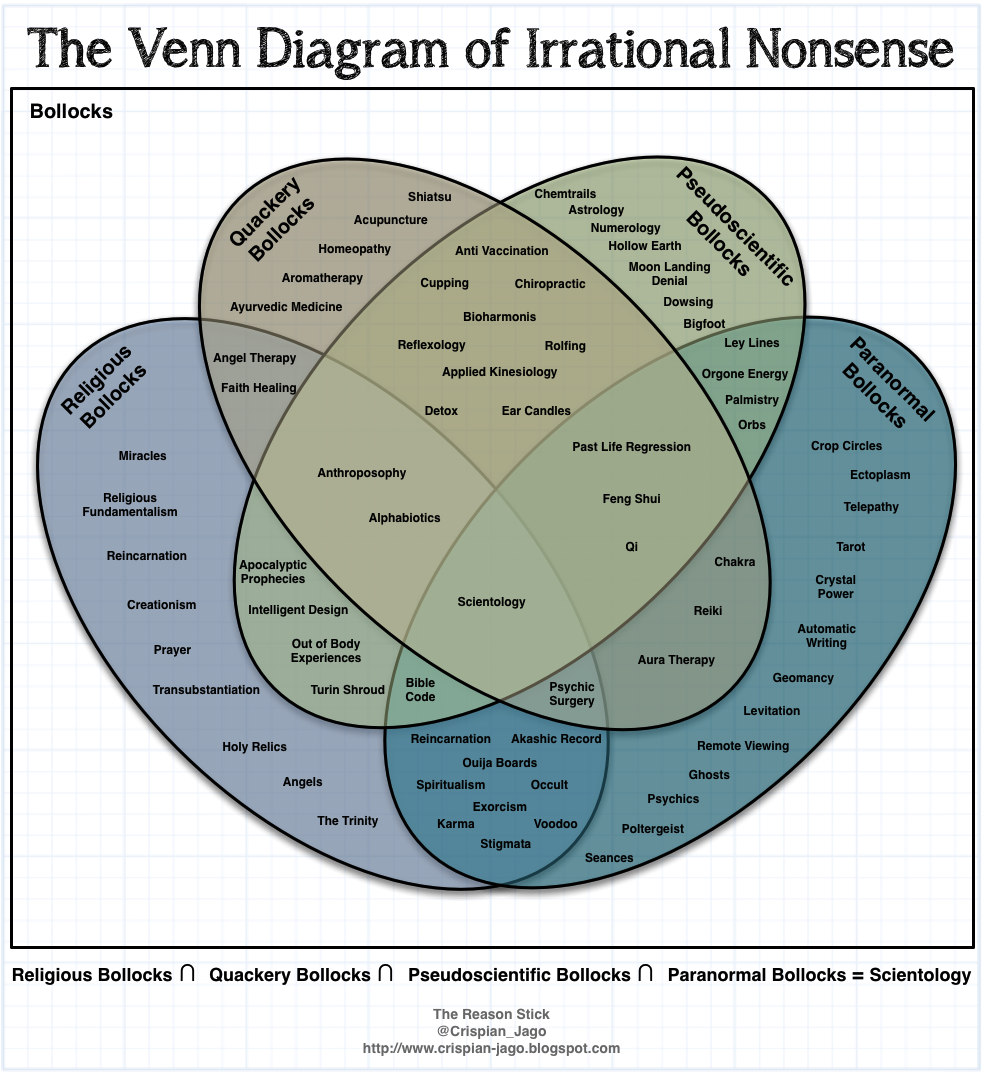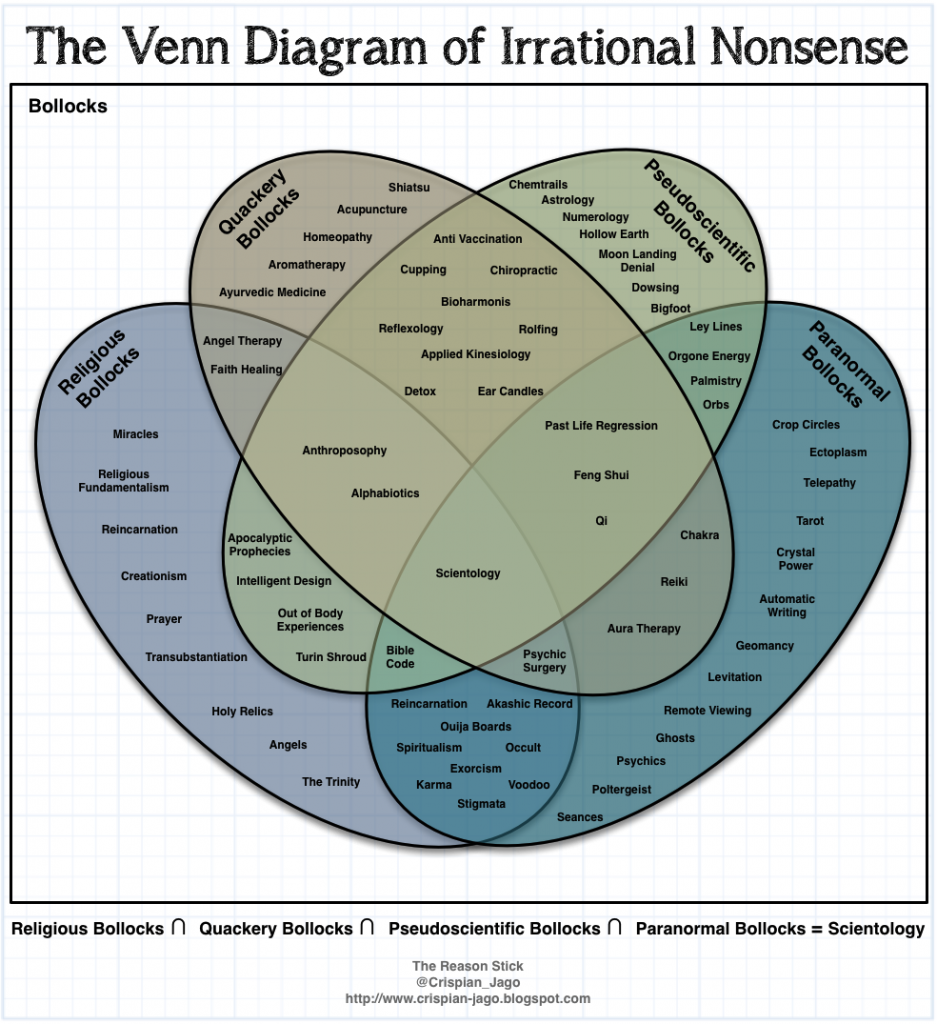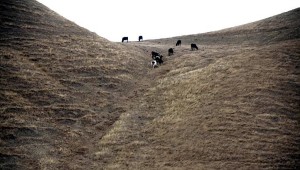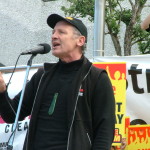 Mike Treen is National Director of Unite Union and spokesperson for Global Peace and Justice Auckland. He has been involved in movements for progressive social change since getting active as a high school student in the anti-vietnam war movement in the 1970s.
Mike Treen is National Director of Unite Union and spokesperson for Global Peace and Justice Auckland. He has been involved in movements for progressive social change since getting active as a high school student in the anti-vietnam war movement in the 1970s.
Laila Harré goes all the way (WARNING: Politically explicit)
Last week I joined the Green Party.
Sure, we’d been friends for a long time, but this wasn’t a courtship. The last time anyone actually asked me to join was just after the 2005 election. It was Rod Donald and we were at the CTU Conference as the Greens were being side-lined from Helen Clark’s third Government. Rod thought it was time for me to come out of mourning for the Alliance. I took another eight years to get there.
Ever since I was presented with a smorgasbord of political parties and tendencies as a 15 year old activist (I chose Labour), party joining has been a serious matter for me. Voting, leafleting, making donations – that kind of stuff is easy (which isn’t to say it’s easy to get people to do it). The Party’s grateful, it’s not an exclusive deal and you can hang onto your independence. But joining? That’s going all the way. And for a practical person like me that kind of leap requires a balance of conviction and trust.
Let’s start with the conviction.
A week ago Julie Anne Genter, Green MP and transport spokesperson, kicked off a speaking tour on the case for the Auckland City Rail Link. It’s not as if the Greens have the monopoly on this patently obvious addition to Auckland’s transport network. Len Brown campaigned on it in 2010. Labour says it will fund it if elected in 2014. A business lobby is about to get behind it in a big way. The Greens do, however, have a monopoly on coherence. The rail link doesn’t just make sense on the transport economics front. It makes sense as part of our contribution to reducing global greenhouse gas emissions, it makes sense in democratising access to transport infrastructure and it makes sense for the development of a city of neighbourhoods.
Last night more than 60 West Aucklanders came to hear Green Co-Leader Meteria Turei and housing spokesperson Holly Walker talk about the Green’s “Home for Life” proposal. One time Green candidate and housing issues expert, Alan Johnson, who joined them on the platform, didn’t shy away from the conundrum that Auckland’s housing shortage, twinned with excessive investment in Auckland property, represents. With 4000 fewer houses being built each year than can accommodate our population growth it is going to take more than the unitary plan to stand between a liveable city and the Government’s appetite for easy greenfields development.
Housing and transport are among the big systems issues of our time. How they are resolved will define the kind of lives our grandchildren live. And big systems need political champions. There’s no question that the right have able champions for their big systems – epitomised by Steven Joyce and Gerry Brownlee with their extractive industry crusade and roads of national significance, window dressed by Judith Collin’s human rights appointments, John Banks’s charter schools and Paula Bennett’s periodic plucking of the welfare state’s eyebrows.
The Greens provide different sorts of champion, not just because of any particular technical policy solution but more fundamentally because the kind of systems thinking this stuff needs is a natural fit with greenie-ness. Greens like getting on trains and bikes and putting out our recycling bins. We’d rather be on a surfboard than a jet ski. We dream of community gardens even when we haven’t got the time or local connections to make them happen. Most of us use far more resources than we could claim to replace, but we’d accept significantly greater limits on that in the interests of social justice and a healthy planet.
But this sense of an identity shared with other greens needed a booster to get my broken political heart over the line to join another political party. While the part of me that smiles when I put my peelings in the compost bin on the bench or hands over my keeper cup to the barista like a secret green handshake could have a happy picnic with the Green Party, it takes more than that to get into the political trench with folk. It takes trust.
Russel Norman has taken down a big hurdle there. I wish the party had a dollar for everyone whose first response when I say I work for the Greens is a positive comment on Russel’s grip of his economic portfolios. Given a pretty good chance of having Greens in government next year, that matters.
So with two of my identities intact – the greenie one and the social democratic one – I’m ready to get involved in the machinations of a party again. Not enough of us do and there is a lot of work to be done. Naturally enough I’m keen to be involved in policy work in my old patch of industrial relations, where it’s time to address the deficiencies of the Employment Relations Act, and I’ll be putting my oar in for free tertiary education and universal student allowances. I’d like to see the Greens navigate the battle lines of welfare and work without getting their heads shot off (or shooting off each others). This is one of the toughest policy challenges of our time.
I’m looking forward to having my say in the list selection but I’ll be steering clear of anything that requires tortuous consensus decision-making around the minutiae of Party rules. That’s when you’ll find me peeling the spuds.
Cost-savings > families
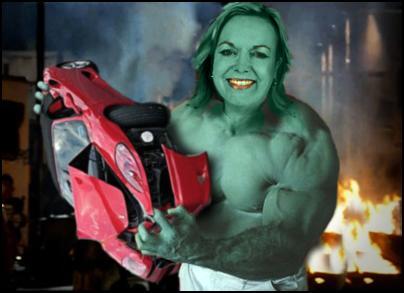
Crusher Collins ANGRY! Crusher Collins smash Family Court!
Judith Collins is a disciple of the gospel of neoliberalism: a worshipper at the altar of cost-savings. It’s no surprise then that she’s introduced the Family Court Proceedings Reform Bill, a response to a Court that has seen “its costs greatly increase”. Critics have ripped the bill with “family lawyers, welfare agencies and community organisations slamm(ing) the bill as a cost-saving scheme that will cause vulnerable families and children to suffer”.
The bill is marketed as “creat(ing) a modern, accessible family justice system that is more focused on the needs of children and vulnerable people”. Innocuous enough, but beneath the spin is a worrying attack on the family.
Significant changes will be made to the Care of Children Act, the Domestic Violence Act, the Family Courts Act and others. One of the centrepieces of the new bill is Family Dispute Resolution (FDR). Before an application can be made to the Court, families will be required to undertake an FDR session(s) – without legal representation and bearing the $900 cost.
In effect, FDR will legislate poor families out of the Family Court process. There are indications that poor families will have the cost “subsidised”, but that doesn’t properly mitigate the imbalance between families that have and families that have not. The user pay principle should apply for commercial and non-essential services, but family law is different: it’s in the interest of society and the community to see family disputes settled. The downstream effects of family breakdown are well known. Given that, the government should be removing barriers to resolution, not building them.
The burden of bearing the cost will fall disproportionately on Maori. Maori make up 25% of care of children cases (which FDR will apply to), 19% of family proceedings and 37% of CYFS cases.* Add to that, there’s no recognition of tikanga Maori and no one’s actually sure what an FDR means. The nature of an FDR and the providers will be specified in regulation. That’s poor Parliamentary practice and an unnecessary derogation to the executive.
In a written submission to the select committee, family law expert Professor Bill Atkin labelled the bill “retrogressive” and argued that it risks leaving people “unprotected and left to their own devices”.** Family law must aim to protect the vulnerable (i.e. reduce inequalities) and the paramount consideration should be the wellbeing of the child or children. The current bill doesn’t do that.
At clause 7 the bill holds that a lawyer for the child can only be appointed if the Court has “concerns” for the safety and wellbeing of the child and if the Court considers a lawyer “necessary”. It’s a two-step test, but surely any case that reaches a hearing is – by definition – concerning and dangerous to the safety and wellbeing of the child. Under the previous section children were entitled to a lawyer if they were subject to or a party to any proceedings. The change is an attempt to reduce legal fees, but it sacrifices the interests of children. That’s not what family law is about.
One of most worrying clauses is 7A – the role of lawyers. The clause limits the situations in where parties are entitled to legal representation. The aim is to reduce costs by keeping lawyers out of the Court. The Family Court Advisory Group notes that the effect is to “entrench” the “power imbalance between parties”. Legal representation helps correct power imbalance (i.e. inequalities). If parties have to represent themselves, the Court process favours those in positions of power. Power in the formal sense, think an educated party versus an uneducated party, and the informal sense, think a violent husband as one party versus an abused wife as the other party. Without legal representation, there is gross inequality. Inequality that, I think, will effect women disproportionately. After all, the Court can feel and operate like a boys’ club.
The changes I’ve outlined barely scratch the surface. Submitters have slammed the bill and various groups have ripped on it in the media. The government’s changes are, in essence, going to increase inequality and unfairness in the system. Pauline Tapp and Nicole Taylor were right to argue that:
Restricting the role of the family justice system to a narrow, technical focus is contrary to the research evidence”**
New Zealand’s family law system is internationally respected. However, the government is prepared to chuck the baby out with the bath water after worshipping and having an epiphany at the altar of cost-saving.
———-
**Written submissions are not online yet
***See Family Law Policy in New Zealand (4th edition) edited by Professor Atkin and Professor Mark Henaghan, the Dean of the School of Law at Otago University.
Blogging The MANA AGM & Feed the Kids symposium
The Daily Blog will be blogging the MANA Party AGM and Feed the Kids symposium in Tokoroa April 12th & 14th.
Members can register here.
Interviews, updates and perspectives of NZs newest Parliamentary party will be part of the line up. MANAs ‘Feed the Kids Bill’ will be voted on in June to see if it can get to a first reading so the symposium will be an important stepping stone to what could be the most significant upgrade in health to our poorest kids we’ve yet to see under this Government.
The Most Beautiful Way To Stop A Bully I’ve Ever Seen
The Most Beautiful Way To Stop A Bully I’ve Ever Seen
Face TV listings Tuesday 26th March
AM
8.00 In Focus
8.45 Classic serial
9.00 Bloomberg
10.00 Green Matters
10.30 Tomorrow Today
11.00 euronews
PM
12.00pm In Conversation
12.30 Bloomberg
1.00 TV Chile 24 Horas
1.30 euronews
2.00 NHK Newsline
2.30 Korean news
3.00 Dutch news
3.30 French news
4.00 German news
4.30 Box Office America
5.00 Euromaxx
5.30 DW Journal
6.00 Aljazeera News
7.00 Pacific Viewpoint
7.30 The Beatson Interview
8.00 The Couch [PGR]
9.00 Australia News
9.30 The Wine Squad [PG]
10.00 Danger Man [PG]
10.30 PBS News Hour
11.30 Song Writers Across Australia
Face TV broadcasts on Sky 89 & Auckland UHF
Face TV Twitter
Face TV Facebook
The Daily Blog Watch Monday 25th March
Today’s Daily Blog Watch Round-Up of matters that have attracted the attention, assessments, and articulations of this country’s leading bloggers…
NZ Left Blogosphere
On The Standard – that favourite amongst Labour Party MPs, issues raised are many and as varied as the opinions they elicit,
– Karol writes about “Pacific Renewables” – and analyses National’s position on the issues.Renewable energy is an interesting theme – considering National’s condemnation of Solid Energy’s attempt to build up it’s own portfolio of renewable energy projects.
– James Henderson writes a short but insightful piece, “On the accuracy of online polls“, on pre-registration on Mighty River Power, and it’s comparison to the sale of Contact Energy in 1999.
– In “Benefit reforms trigger surge in DPB births?“, Anthony R0bins, analyses stats relating to women on thre DPB and the conflicting messages from Minister Paula Bennett. Good analytical stuff – but does any of it percolate down into the TV-addled brains of the masses? After all, as she has said on at least two occassions, “there are not enough jobs for everyone“.
Or is Bennett simply pandering the the redneck element in our society? Oh perish the thought.
On Maui Street, Susan Devoy’s appointment is discussed in “Dame Susan Devoy: race relations “not complicated” and raises points that other bloggers have missed. He concludes with a damning verdict on Devoy’s appointment.
This is echoed on Kiwipolitico, where Lew writes that “Selections matter“. Lew doesn’t pull punches,
“This is a terrible appointment. Anyone who thinks Aotearoa’s race-relations culture isn’t complicated is by definition not equipped for the job of guiding and guarding it.
Not only is our new Race Relations Commissioner ashamed of our national day, but as far as she’s concerned it’s just another ism — revealing how little she must know about disability, employment or gender issues into the bargain.
So as far as that goes, she looks like the perfect post-ideological, post-identity selection for such a job: a common-sense managerialist who, to the limited extent that she understands the issues in play, finds them distasteful. “
On Tumeke, Tim Selwyn gives his views on Devoy’s appointment (see – Hunch), and suggests that the rationale for this strange event was “Collins – and Key – wanted a symbol and representative of the Nat’s concept of “middle NZ” in the race relations role“. Which, when you think about it, makes perfect sense, in a screwy, right-wing way.
The Party of the White Middle Class appoints a Middle Class White woman to appease the Middle Class Whites. Not even a finger-sniff of “political correctness” to be had. (Have the Nats hired Dr Evil to do their strategising, I wonder?)
From the excellent Ideologically Impure…
(Excellent, because QoT speaks her mind in ways that even dumbed-down right whingers can cope with and if they don’t like it, well, f**k them anyway.)
QoT’s latest blogposts, (going backwards in time, ‘cos, well, going back in time is cool – dunno about fezzes though)
Monday: Various links to other blogposts on the Steubenville case, “Random recommended reading: Steubenville roundup”
Sunday: “Whinging about Earth Hour” – an ascerbic look at Consumerism in our societies, and the demands we’re making on developing nations with “Earth Hour”.
Saturday: “Another day, another bullshit Family First/Curia poll” – A stinging critique on David Farrar’s Curia-polling for Family Fist (aka that busy-body “Christian” group that demands that a penis be inserted into a vagina and nowhere else, and will put a guard by your bed to ensure it’s done in precisely that manner. Missionary, of course).
QoT tears apart Farrar’s bullshit poll and shows us with crystal clarity why it’s unadulterated garbage.
How much did that piece of BS polling cost Family Fist, I wonder?
And how did Farrar feel, prostituting himself in such a manner?
As alway, QoT is must-read stuff. Clears the mind and nasal passages as you snort at the wacky-doodleness of the Right.
The Jackal: some excellent environmental commentary by The Jackal, including a very thoughful piece on natural gas production in New Zealand. See, “Wind power more viable than fossil fuels”
From Chris Trotter on Bowalley Road, “Learning from Cyprus“…
“We are told as children that the safest place for our money is in the bank. More than that, the building up of personal savings is encouraged by politicians and bankers as the mature and responsible course that all good citizens should follow.”
Thus Chris Trotter analyses the EU bailout of Cyprus which, ‘oh by the way’, demands that Cypriots (and other residents of that Island State) part with some of their life savings to bail out the banks. Cypriots were in full revolt. The system was in crisis. Thus it begins…
And in case New Zealanders were content to be smug about it, he wipes away the collective smirk from our faces by pointing out that Bill English and the Reserve Bank were implementing a similar policy here in Godzone; the euphemistically-sounding ‘Open Bank Resolution’.
From Brian Edwards on his Media blog…
Brian Edwards gives an over-view on the availability of current affairs shows on free-to-air TV, and offers a revisionist verdict on “Seven Sharp” (“hamburger”?). He compares current affairs during the days of ‘Gallery‘ and ‘Compass‘, where politicians would undergo ritualised interrogation and excoriation – to the multitude of shows broadcast these days.
Edwards forgets one thing though. Forty years ago, politicians reported-for-duty to be interviewed/water-boarded by the likes of him and his colleagues. These days, more often than not, politicians will either send their flunkeys (think: Lesley Longstone), or just refuse point blank to participate (think: Radio NZ and ‘Campbell Live’). Somewhere along the way, polis realised, “Hey, remind me why should I turn up and have my gonads shredded by John Campbell, Mary Wilson, or Kim Hill?”
But he makes a point that perhaps we aren’t as hard done-by for current affairs as we’ve thought. Now if only broadcasters would put “Q+A” and “The Nation” at prime time, we’d be happy little campers.
On DimPost, Danyl Mclauchlan writes a micro, Twitter-style blogpost on Susan Devoy’s apointment as our new Race Relations Commissioner.
Ms Devoy is on record as being unafraid of banging heads together if that’s what it takes to make us sing ‘Kumbaya’ in unison, saying she is “pretty forthright and not afraid to have an opinion, but at the same time I have a very strong moral compass and I have a desire to do the right thing.”
Danyl’s prediction of Kiwis engaging in “a bloody orgy of ethnic cleansing” is possible – but not during Shortland Street. That would annoy too many people.
On Public Address – the blogsite that could be considered the precursor to The Daily Blog, recent posts focused on,
– Russell Brown’s review, ‘The Golden Weather on Wheels‘, of Andrew Moore’s 2006 documentary ‘No More Heroes’, and the story behind it’s funding and mass release to the public. An interesting glimpse into our recent history.
– Graeme Edgeler’s ‘A little known story of the Māori seats‘ crunches numbers and statics when analysing the history and current status of Maori seats in this country. Graeme asks some serious questions on how the numbers of Maori seats are calculated and the lack of oversight in the process. It’s a long read, but a substantial one.
Expect Graeme’s piece to be picked up by the msm sometime soon. (Unless another penguin lands on our shores. Sorry, Graeme.)
– In ‘Vivid, lively, unruly‘ Russell Brown criticises Auckland Council’s policy on destroying community wall art – even that which is painted on private property. Not quite “nanny state” stuff – more like Barbarians At The Gate (no, not Gerry Brownlee).
Gordon Campbell’s ‘Gordon Campbell on Susan Devoy’s appointment, and the Gillard non-coup‘ writes on Devoy’s unlikely appointment and the latest challenge to Julia Gillard’s leadership. An interesting juxtaposition of two women in positions of authority, and both under attack in the media and commentariat.
Campbell refers to Devoy’s appointment as “political trolling” – a deliberate wind-up of the Liberal-Left establishment in this country. It’s as good as explanation as any. Like flying saucer sightings, there is no other rational explanation.
As for the leadership challenge, Campbell eviscerates Gillard and the Aussie Labor Party. We all know that Labor is Dead Man Walking, and like some horrible dream, they are unable to turn away from being drawn down their path of doom. It would be entertaining… except we had our own path of doom for our Labour party in 2011.
On The Pundit, in “No two-state solution = no democratic Jewish state“, Jane Clifton writes about Obama’s visit to the Middle East. She suggests that “the American President made it clear that no separation wall and no missile protection system offers long term solutions”.
The solutions are fairly well known, but with American backing, the Israeli government has is no real incentive to cease it’s repression of Palestinians. None whatsoever.
As Clifton pointed out, “Obama didn’t present a plan, but maybe he set a new tone“. Let us hope.
Post of the Week:
In The Hand Mirror, contributor Stargazer wrote in her piece, “Hoping for the best” about the Devoy appointment. She writes simply but with strong conviction,
“i need to depend on her being the voice standing up for people of colour. i need to count her being willing to step in and stand up and fight when i can’t fight or when my voice isn’t loud enough or strong enough to be heard.”
Stargazer’s piece comes poignantly from the heart. If Devoy can’t handle-the-jandle it’ll be folk like Stargazer who will be most affected.
Stargazer continues with,
“because her voice is strong enough to cut through – it carries the full weight of her office and the institution that stands behinds her. it opens doors that aren’t accessible to me, in that she is much more likely to be granted entrance into organisations or given interviews with people than i am. she has access to funding and support structures that i don’t have access to, at least not in the same way. in fact, sometimes she gets to be a gatekeeper in regards to my ability to access that support.”
And this is where the “Devoy thing” moves from being the joke that some on the Left snigger about – to one of deadly seriousness that will affect a lot of people. Powerless people.
This is the Other Side of the debate that neither the Left nor the Right have addressed.
On The Daily Blog
–The Liberal Agenda for the week.
-Frank Macskasy argues that the Right has a new media voice.
-Dr Wayne Hope explains why ‘Argo’ is a lie.
-Martyn Bradbury jokes about Peter Jackson wanting to film an episode of Dr Who and looks at the looming redundancies at the Human Rights Commission.
-Chris Trotter takes on Brian Edwards.
-Allan Alach explores the dirty truth of Charter Schools.
-and Phoebe Fletcher notes that the US military gives credence to Pacific climate change concerns.
Brian Edwards Redefines Current Affairs Television: Or, How the ‘Fearless Interrogator’ Learned to Giggle.
EVERY YEAR the Catholic and Anglican dioceses of Auckland run a Lenten Studies Series. The theme for 2013 was “Recovering the Common Good”. Invited to participate in one of the four scheduled panel discussions, I was pleasantly surprised, upon turning up last Wednesday evening, to find the old wooden church adjoining Holy Trinity Cathedral close to two-thirds full. It was reassuring to discover that “The Common Good” still packs some pulling power.
Perhaps it was the lingering after-effects of two hours spent discussing the notion of the common good that made me respond so negatively to Dr Brian Edwards’ recent posting on the state of current affairs journalism in New Zealand.
Dr Edwards begins his posting with a brief definition of what current affairs journalism used to be about:
“Current affairs programmes were essentially programmes about politics or issues with a strong political content. On shows like Compass and Gallery we talked to and about politicians and political issues.”
This was “serious” current affairs journalism, said Dr Edwards, distinguishable by its format: “which essentially mean[t] long studio interviews with politicians or lengthy studio debates between politicians. Being entertained was relevant to those viewers only insofar as the disembowelling of politicians was entertaining and new. Our early heroes were Robin Day and David Frost; today we bow down before “Hardtalk’s” Stephen Saccur”.
There was little to object to in these introductory paragraphs – except the tone. Far from validating his readers’ appreciation of current affairs as it was practiced in the days when he was justifiably feted as New Zealand’s leading broadcaster, Dr Edwards was inviting his readers to join him in constructing a straw man.
A straw man he could hardly wait to demolish.
“‘Serious’ is our other favourite word”, wrote Dr Edwards, inflecting the plural possessive with just the right note of populist disdain, “which is why Seven Sharp does not and cannot qualify in our philosophy as a current affairs programme. Those people are having far too much fun. Giggling and current affairs are incompatible.”
It was at this point that Dr Edwards set about his straw man with gusto.
“Can you see where I’m going with this? Can you detect a change in the air? Well, you’re right. You see, I’ve come to accept that there’s been a recent redefinition of what we mean by ‘current affairs’, a more inclusive, more democratic interpretation of the term. And that it’s a good thing. ‘Current affairs’ is no longer exclusively about politics, no longer confined to the ‘serious’ or ‘discursive’ studio interview or lengthy documentary. ‘Current affairs’ now includes anything that is of general public interest though not necessarily in the public interest.”
And that was that. In a single paragraph, Dr Edwards bade farewell to his decades-long association with current affairs broadcasting undertaken for “the common good” and announced his conversion to the sort of television that gets produced when a television network decides it’s no longer committed to making or broadcasting prime-time current affairs journalism.
Dr Edwards uses words like “inclusive” and “democratic” to describe this new kind of programme. Crucially, he draws a distinction between matters “of public interest” and matters “in the public interest”.
So did the Roman Caesars.
But there is a huge difference between the Coliseum and the Circus Maximus and what the German political-sociologist, Jurgen Habermas calls the “public sphere”.
The former were certainly places where the masses gathered to be entertained. And, underlying all the excitement there certainly was an implicit political message concerning the unanswerable might of the Senate and People of Rome. There was, however, nothing remotely “inclusive” about the pure spectacle of the chariot races. And only if you conceive of democracy in terms of giving the “thumbs-up” or the “thumbs-down” to your favourite gladiator could the Roman Games possibly be called “democratic”.
Habermas’s “public sphere” is a very different place. It is where free citizens come to listen and talk to one another. The place where they actively review (if I may borrow the language of Catholic social teaching) “the sum total of social conditions which allow people, either as groups or as individuals, to reach their fulfilment more fully and more easily”. A place to define, develop and preserve “the common good”.
The short way of saying all that is: The “public sphere” is that democratic space where citizens engage in politics.
And that was the space in which Dr Edwards used to do his best work. A space created and (most importantly) defended by a licence-fee-funded (at least partly) and editorially independent (at least theoretically) public television network.
However imperfectly, the NZBC, and later Television New Zealand, attempted to bring the nation’s politicians and the nation’s voters together in a place where questions could be asked and answered; issues examined; policies critiqued. A space where broadcasters, acting on their behalf, were free to extract and present the information New Zealand citizens needed to hold the powerful to account.
In that honourable and unquestionably democratic role, Dr Edwards had few peers. Whether it was on Compass, Gallery, The Dean/Edwards Show or Fair Go, this highly intelligent man, with his lilting Irish brogue, had been our prosecutor, our elucidator, our “fearless interrogator”. The people’s man: champion of the common good.
To see Dr Edward’s conflate Caesar’s (a.k.a the all-powerful, neoliberal, market-driven economy’s) circuses with the intelligent, democratic, current affairs journalism he personified for so many years, was nothing less than tragic.
And all the proof you’ll ever need that giggling and current affairs are, indeed, “incompatible.”
US military gives credence to Pacific climate change concerns
The worst drought in 70 years of records has renewed the focus in the media over whether these conditions might be related to climate change. At an estimated cost of $2 billion to the economy, the implications of the drought are huge for an industry which forms one of the primary sectors of our exports. While Joyce and English have light-footed around the issue, the Greens have argued that the National Party are not taking climate change seriously enough at detriment to our farmers. English fueled the Greens’ argument through his statement in the House last week that similar arguments on climate change had been made in Australia, and it had not stopped raining for the last five years. Unfortunately for English, he had overlooked the fact that Australia has been in drought for the last four years. Grilled by Corin Dann on Q+A on this gaffe, English produced some deft political sound bite maneuvering to shift his answer from focusing on climate change to focusing on the $500 million dedicated towards cleaning up waterways. While cleaning up waterways is great news, the Ministry for the Environment has predicted in their modelling that droughts are going to be more frequent, signalling that it is in New Zealand’s interest to think about the ongoing impact of climate change. Yet listening to the National Party leadership, climate change is often positioned as something that only environmentalists worry about.
While this article in the National Business Review somehow interpreted English not answering on climate change as leading on climate change, the issue of climate change is far less contentious than how it is often presented in the media. With 97% of publishing, peer-reviewed scientists agreeing that climate change is due to human activity (source: NASA), the arguments against it are often based on myth. It is not unusual to hear such myths bandied around as the temperature has not risen for the last 17 years, and the notion that because some parts of the world are cooling global warming is dismissed as an overall trend. Such myths propagate from the way that science is always interpreted through the lens of the social, an area that has received much more attention in literature since Bruno Latour and Thomas Kuhn paved the way for frameworks that examine how the reception of science is often based less on fact and more around the way that it taps or butts against notions of social consensus. Climate change and how we deal with it has also been influenced by the demands of industry, which has been based on the previous paradigm of exploiting resources, making it a touchy issue where legislation (such as carbon taxes) impact on the bottom line. This, together with confusion over the journalistic values of balance (which sees the skeptic side elevated despite broader scientific consensus) has clouded the issue. Moreover, climate change as an issue that requires nation state cooperation often butts against the internal interests of the nation state in requiring a much more global cooperation that transcends geopolitical factions.
Yet if it is not taken seriously in New Zealand, and often paraded as myth in the US media, there are indications that the defense industries are taking the IPCC’s predictions with much more weight. James Clapper is the current Director of National Intelligence and most senior security advisor to President Obama, overseeing 16 intelligence agencies. In the 2013 World Threat Assessment Report, Clapper trots out the usual geopolitical threats to US interests while highlighting the impact that climate change will have on migration and conflict. Clapper’s views reiterate that of the US Commander of the Pacific Navy, Navy Admiral Samuel J. Locklear III, who states that climate change is the biggest threat facing the Pacific. This threat, he argues, has led the US Navy to look at scenarios where they may have to work with China and India to manage the effects of climate change on populations. This news will not come as any surprise to anyone who follows US military policy. Since 2010, the Pentagon has had much more emphasis on the role of climate change and the pressure it places on resources to exacerbate conflicts. The Pentagon estimated in 2010 that more than 30 US military bases are at risk from sea levels rising and the instability caused by climate change led weather effects. In 2008, the Center for a New American Security conducted climate war games set in the year 2015 with 45 scientists and national security analysts from Asia, South Asia, Europe and America in an attempt to see how nations might collaborate to deal with escalating conflicts from climate change effects.
The focus from the US military should signal to the New Zealand government that while climate change threats are often taken as marginal by the media and the public, the science is entering the mainstream. This should not be taken as the need to secure ourselves against our Pacific neighbours – as this article from the AUT Pacific Media Centre shows, the Pacific Islands that surround us want to hold onto their sovereign nations and waters rather than migrating. However, in the context of looking at the ongoing impact of a greater frequency of drought, the notion of climate change needs to move to the centre of our discussions rather than remaining at the periphery.

